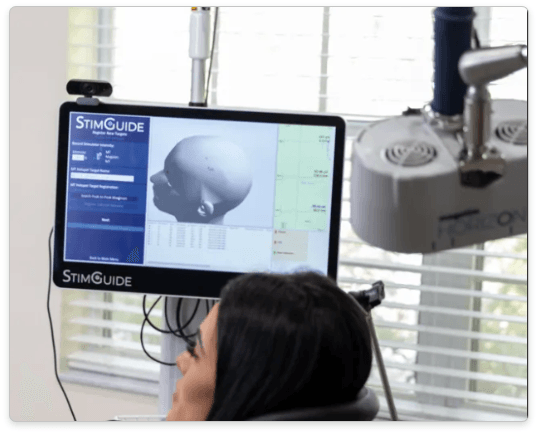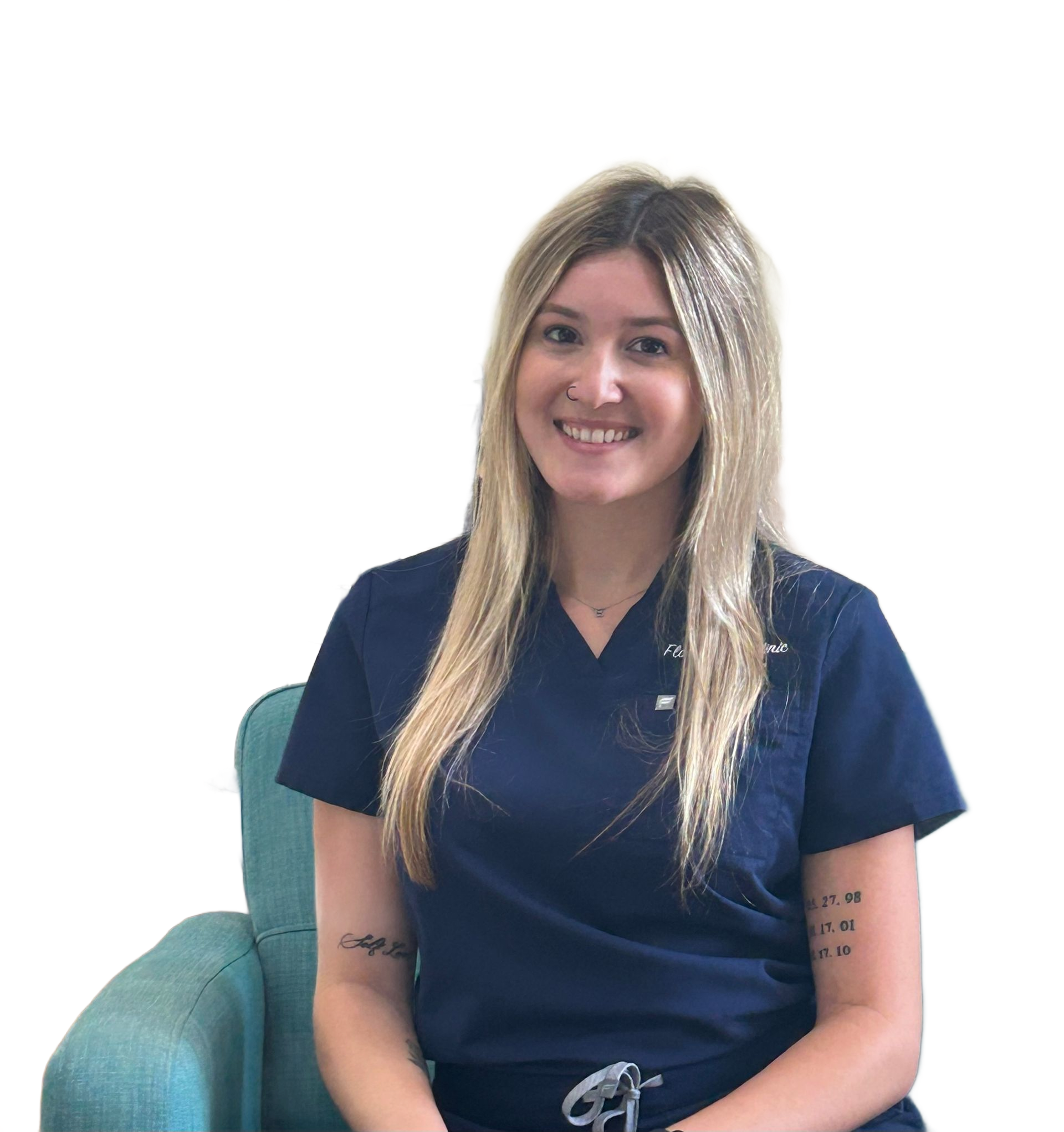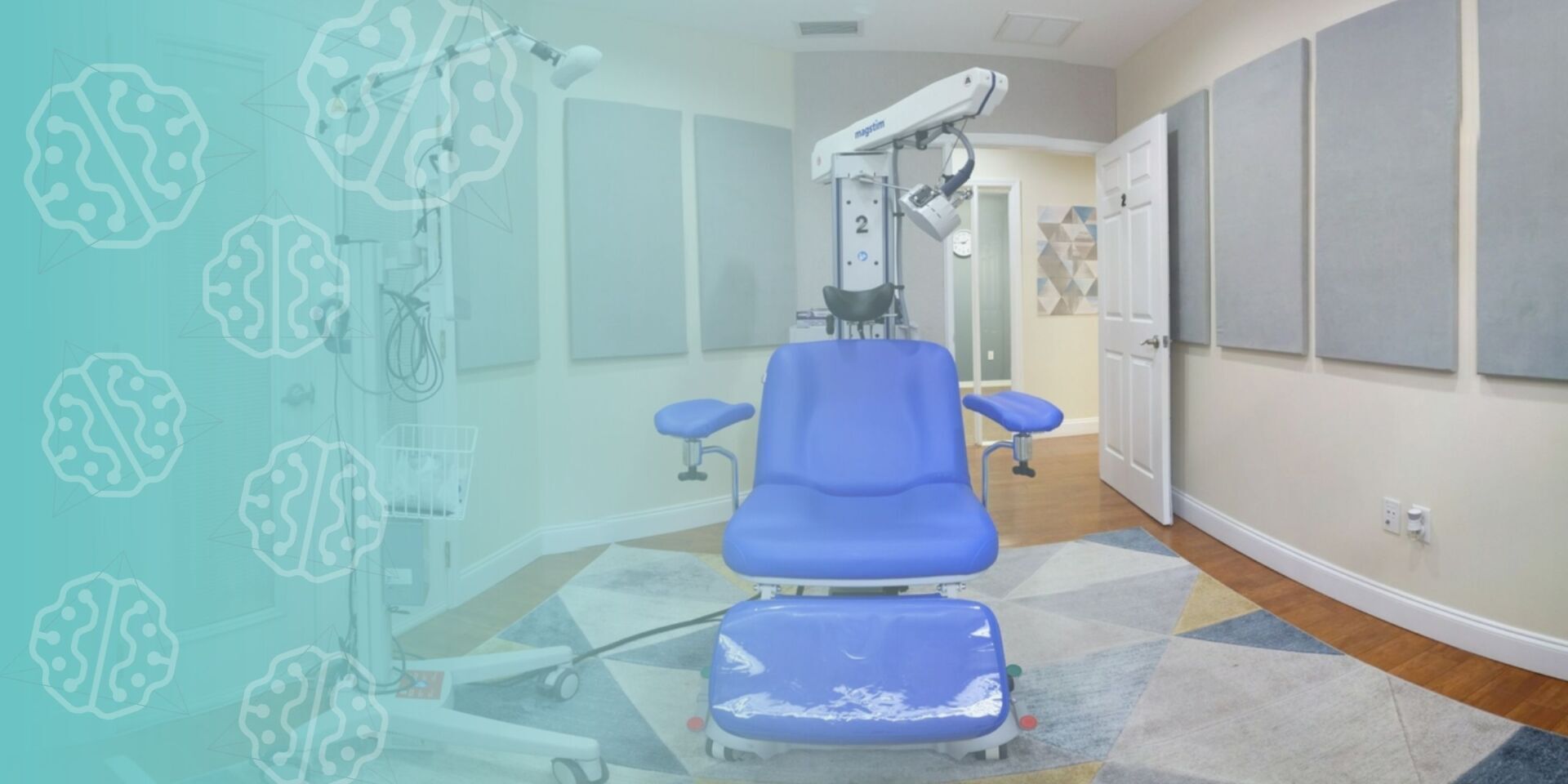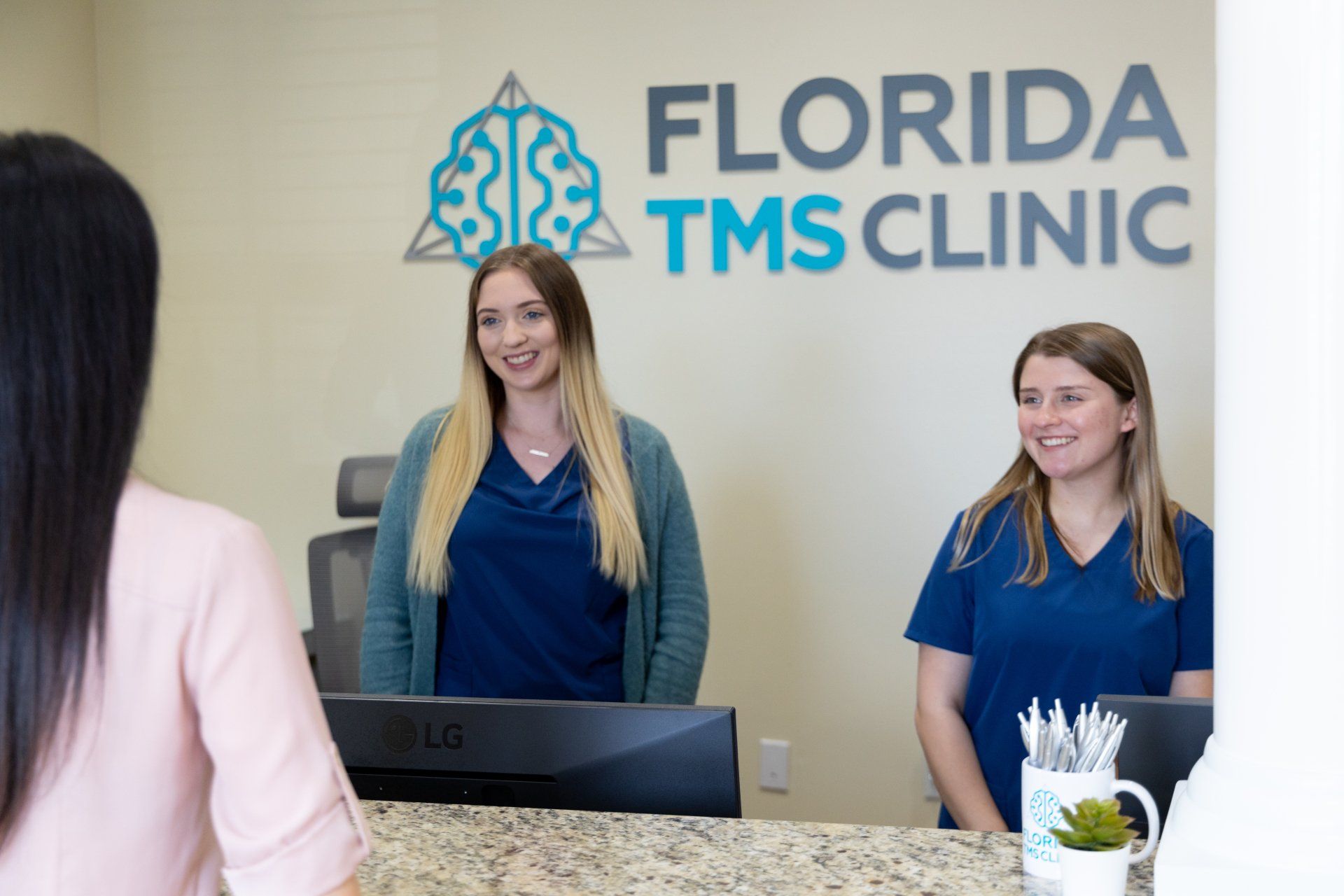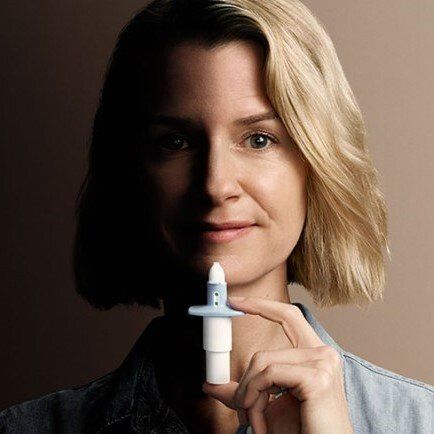TMS for Postpartum Depression
TMS therapy is a revolutionary treatment for depression that doesn’t involve taking any medications. This makes TMS therapy an ideal treatment option for new mothers suffering from postpartum depression, especially those planning to breastfeed their newborn. As TMS therapy is a medication-free treatment for depression, there is no harm to the baby.
In this article, we will discuss more postpartum depression, treatment options, and the advantages of TMS therapy for postpartum depression.
What's the success rate of TMS? Find out here.
Postpartum Depression
Giving birth to a baby is one of the most precious experiences in a woman’s life. The full host of emotions could be triggered that included joy, excitement, and some anxiety. It also can result in a desirable emotional state of depression.
What is postpartum depression?
A good percentage of new mothers could experience a mild form of depression known as "baby blues" after childbirth, “Baby blue” symptoms could include mood swings, crying spells, anxiety, and difficulty sleeping. Baby blues typically begin within the first two to three days after delivery and may last for up to two weeks.
A smaller percentage of new mothers could experience a more severe, long-lasting form of depression known as postpartum depression. Rarely, an extreme mood disorder called postpartum psychosis also may develop after childbirth.
For those experiencing postpartum depression, prompt treatment can help the mother manage symptoms and help the mother bond with her newborn baby.
What are the symptoms of postpartum depression?
Postpartum depression signs and symptoms can include:
- Depressed mood or severe mood swings
- Excessive crying
- Difficulty bonding with your baby
- Withdrawing from family and friends
- Loss of appetite or eating much more than usual
- Inability to sleep (insomnia) or sleeping too much
- Overwhelming fatigue or loss of energy
- Reduced interest and pleasure in activities you used to enjoy
- Intense irritability and anger
- Fear that you're not a good mother
- Hopelessness
- Feelings of worthlessness, shame, guilt, or inadequacy
- Diminished ability to think clearly, concentrate or make decisions
- Restlessness
- Severe anxiety and panic attacks
- Thoughts of harming yourself or your baby
- Recurrent thoughts of death or suicide
It's important to call your doctor as soon as possible if the signs and symptoms of depression have any of these features:
- Don't fade after two weeks
- Are getting worse
- Make it hard for you to care for your baby
- Make it hard to complete everyday tasks
- Include thoughts of harming yourself or your baby
- If you have suicidal thoughts
- If at any point you have thoughts of harming yourself or your baby, immediately seek help from your partner or loved ones in taking care of your baby and call 911 or your local emergency assistance number to get help.
Also, consider these options if you're having suicidal thoughts:
- Seek help from your primary care provider or other health care professional.
- Call a mental health professional.
- Call a suicide hotline. In the U.S., call the National Suicide Prevention Lifeline at 1-800-273-TALK (1-800-273-8255) or use their webchat on suicidepreventionlifeline.org/chat.
- Reach out to a close friend or loved one.
- Contact a minister, spiritual leader, or someone else in your faith community.
Causes of Postpartum Depression
What causes postpartum depression?
It is thought that many factors play roles in causing postpartum depression. This includes
Physical changes:
Hormonal changes like decreased estrogen and progesterone. The pregnancy hormones and the sharp decline of these hormones shortly after delivery are considered the biggest factor in triggering postpartum depression. Also, the hormones produced by your thyroid gland also may drop sharply, which can leave you feeling tired, sluggish, and depressed.
Emotional changes:
This could include sleep deprivation, feeling overwhelmed, feeling anxious about your ability to care for your child.
What are the risk factors for postpartum depression?
Some of the following may increase your chances of having postpartum depression:
You have a history of depression, either during pregnancy or at other times
You have bipolar disorder
You had postpartum depression after a previous pregnancy
You have family members who've had depression or other mood disorders
You've experienced stressful events during the past year, such as pregnancy complications, illness, or job loss
Your baby has health problems or other special needs
You have twins, triplets, or other multiple births
You have difficulty breast-feeding
You're having problems in your relationship with your spouse or significant other
You have a weak support system
You have financial problems
The pregnancy was unplanned or unwanted
Postpartum Depression Treatment Options
How to treat postpartum depression?
Psychotherapy is usually the first-line treatment for mild to moderate depression. Psychotherapy and medication antidepressants like Zoloft or Sertraline could be considered by your doctor. But what if you didn’t want to be on any medications. Or you have not responded to antidepressant medications. Is there an alternative safe treatment for depression that is completely drug-free? The good news, Yes. It is called TMS or Transcranial Magnetic Stimulation therapy.
TMS Therapy for Postpartum Depression
Does TMS therapy work for postpartum depression?
Yes. TMS therapy can help with postpartum depression without any of the risks of medications on the bother or newborn child. This is because TMS is a medication-free treatment for depression and there no risk of passing any chemicals via breastmilk
Transcranial Magnetic Stimulation (TMS), FDA-cleared treatment for major depression, is an effective, non-invasive procedure that uses magnetic stimulation to stimulate specific areas of the brain. It is an attractive option for those who cannot use or have not responded to traditional
antidepressants. In the case of postpartum depression, and if breastfeeding is desired by the mother then TMS is the safest option for the newborn.
How does TMS work? Click here to learn more.
Are there any studies on TMS therapy for postpartum depression?
Yes, a few studies proved the efficacy and safety of TMS therapy for postpartum depression. We will go over the main ones in this paragraph.
A
study by Cox and colleagues, 2020 investigated the efficacy of TMS or rTMS in a group of women with postpartum depression (PPD). In this study, six women with postpartum depression received 20 sessions of 10 Hz rTMS over the left dorsolateral prefrontal cortex (DLPFC) over a 4 week period (5 days per week). Symptoms of depression and anxiety were measured weekly, as well as 3 months and 6 months after study completion. Four of the six patients achieved remission from depression at study completion. At 3 and 6 months follow-up, four subjects maintained remission from depression at 3 months, and three subjects remaining in remission from depression at 6 months.
Another
study by Garcia et al, 2010 showed consistent results. In this open-label study, nine women with postpartum depression were treated with 20 rTMS treatments over a 4 week period. Eight patients in this sample achieved remission (88.9%). The treatment effect endured over time; seven remained in remission at the 6 months follow up.
A
study by Myczkowski et al, 2012 also showed a similar effect. In this randomized, placebo-controlled, double-blind pilot study, 14 women with postpartum depression were randomized to receive 20 sessions of rTMS or sham treatments (placebo) over a 4 week period. Assessed at two weeks after treatment conclusion, there was a reduction in depressive symptoms and severity of illness, as well as improvement in social and cognitive functioning.
Another open-label
study by Brock et al, 2016 looked into TMS therapy for postpartum depression. In this trial, 25 women with postpartum depression received rTMS up to five times per week for up to 8 weeks. 19 out of 25 women completed the study; 14 out of the 19 participants (73.7%) achieved remission by the end of 8 weeks of treatment with TMS.
TMS vs ECT for postpartum depression
While TMS is often compared to electroconvulsive therapy (ECT), it has many advantages. For one, its mechanism of action does not require induction of a seizure or anesthesia which are required for ECT. Therefore, the patient remains alert throughout the rTMS treatment. She would be able to resume her usual activities immediately following each treatment, and there is no observable impact on cognitive functioning. And there is no exposure to any additional medications.
Click here to learn more about TMS vs ECT
In summary
All clinical trials conducted so far indicate that TMS therapy is effective, safe, and well-tolerated in women with postpartum depression. TMS treatment resulted in improvement in depressive symptoms which were maintained over 3 to 6 months of follow-up. Remission rates were relatively high, ranging from 66% to 90% in open-label trials.
While TMS is a promising non-pharmacologic treatment for postpartum depression, we must consider the burden this treatment carries. TMS therapy requires daily commitment 5 days a week for 6 weeks. Although the treatment sessions are brief, the fact that they occur on a daily basis could be very demanding, particularly for a new mother with depression.
In conclusion, TMS therapy is an
alternative treatment option for depression that is particularly appealing to breastfeeding mothers suffering from postpartum depression.
